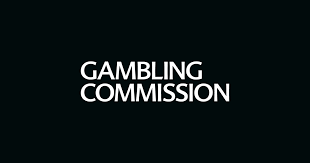An Irish gambling regulator will help to investigate a national survey in the country on gambling.
The Gambling Regulatory Authority of Ireland (GRAI) has highlighted its role in developing the 2025 National Student Survey and assisting with the gambling section.
The yearly survey is conducted for the country by the Union of Students in Ireland. England has its own similar survey, which is sent out to university students studying in England to answer questions about their university experience.
But how is the regulator involved, and what does this mean for the Irish gambling industry?
How Is GRAI involved?
Firstly, GRAI has included a link on its website that links to the survey. In a press release on their website, they announced their collaboration with the Union of Students on the survey.
According to their statement, the survey includes four sections. First is a demographics section, presumably to find out the students’ identity, so they can identify any racial or age patterns with gambling. Second, there is a section about gambling habits, followed by sections on drug use and mental health.
For students, the study is completely anonymous, with no identifying details being revealed due to the sensitive and personal nature of the survey.
The survey is 15 minutes long, and the incenctive to fill it out comes through a prize draw which students can enter at the end by entering their details.
In recent months, Ireland has been at the center of gambling reform and calls to do more to protect Irish people from gambling-related issues. Earlier this week, some top Irish banks implemented a voluntary card blocking feature on their customers’ debit cards, which blocks any gambling-related transactions on their accounts.
What Could This Mean For The Irish Gambling Industry?
For the Irish gambling industry, this is a good thing. Encouraging transparency and honesty about gambling habits allows authorities to make necessary and data-backed policy changes to challenge the issues.
Furthermore, specifying the age groups where these problems happen is essential to encourage change. Betting is becoming increasingly common among young people, so targeting students in a survey like this is a productive way to understand how young Irish people approach gambling.
However, although the survey is anonymous, it does have one major flaw: It relies on the honesty of students. In a survey that asks questions about personal habits and some illegal activities, putting gambling in there could be problematic. Students may feel uncomfortable answering questions about their habits and may lie to protect themselves from getting in trouble.
Let’s be honest, it’s unlikely that every student in that survey is going to be one hundred percent honest about what they do where drugs and gambling are concerned, because these are considered taboo topics.
Either way, the data from the survey could be interesting to analyse, once the Union of Students or GRAI publishes it.














